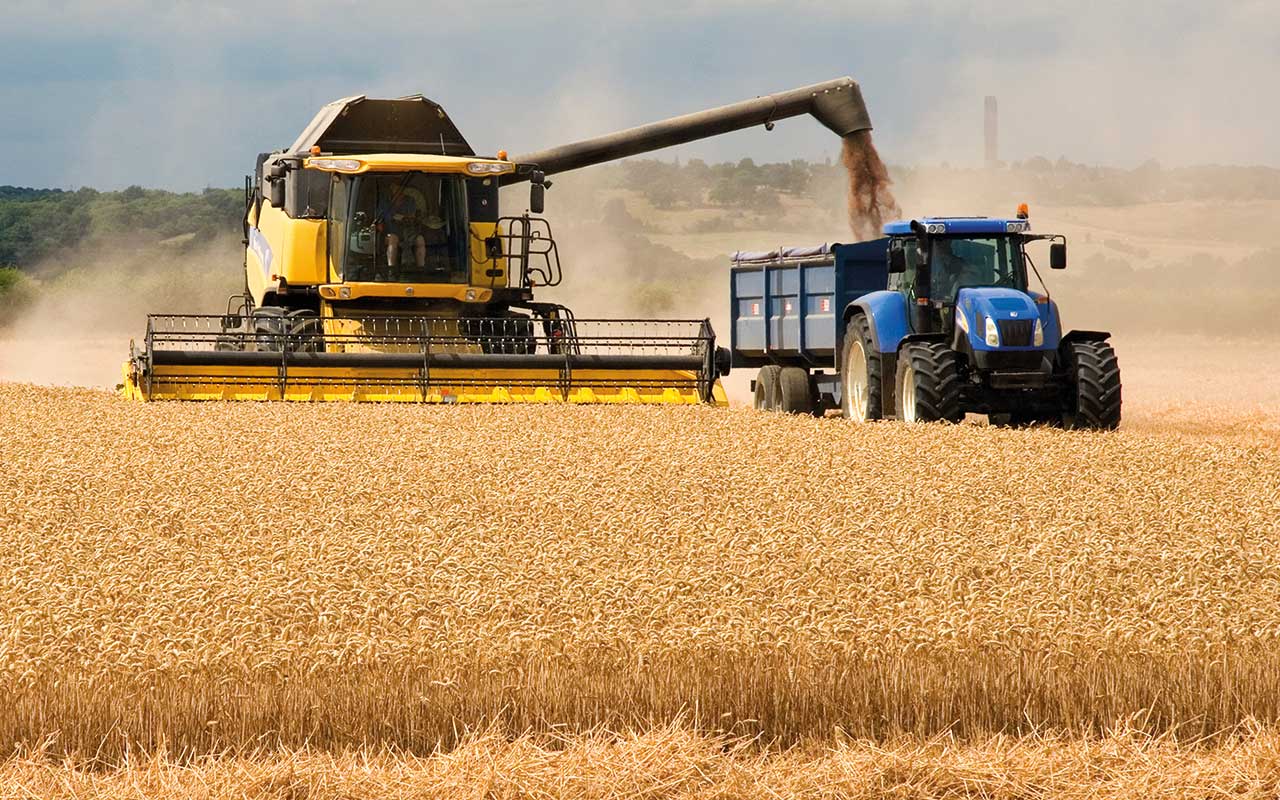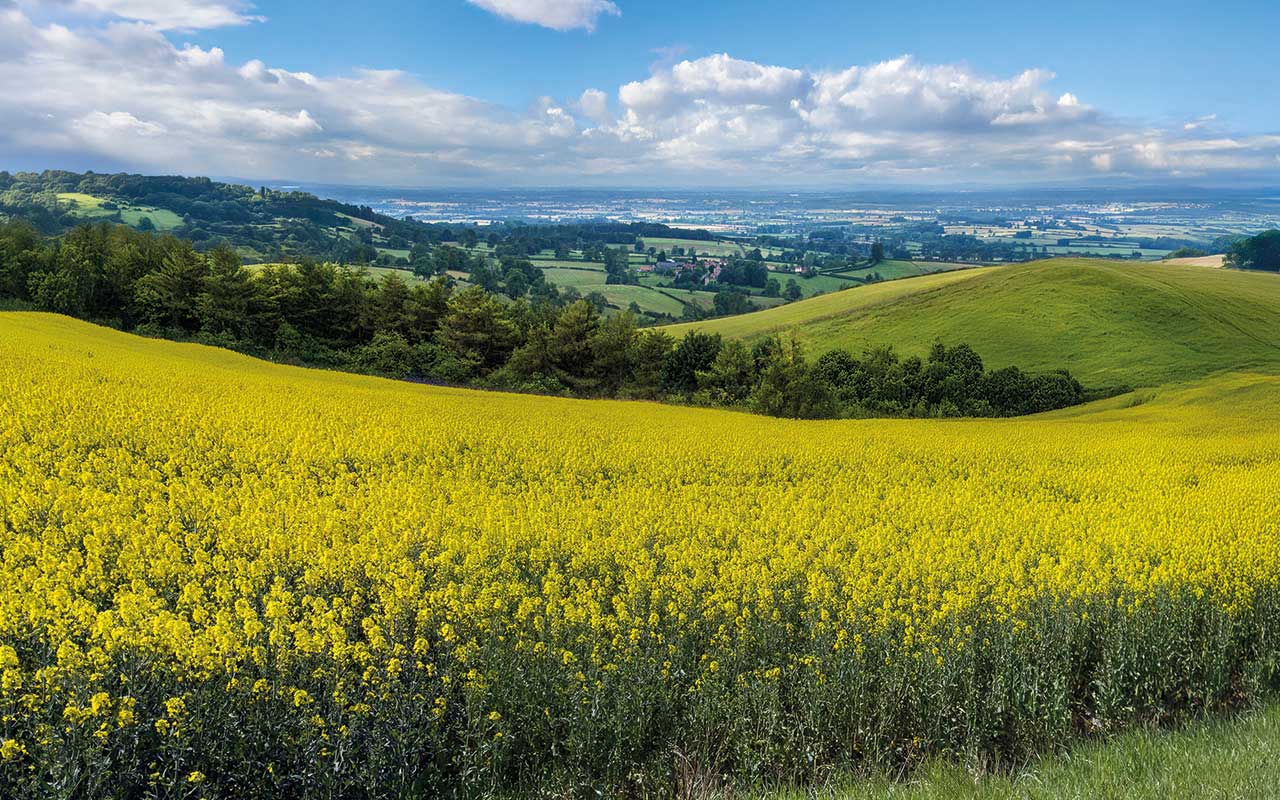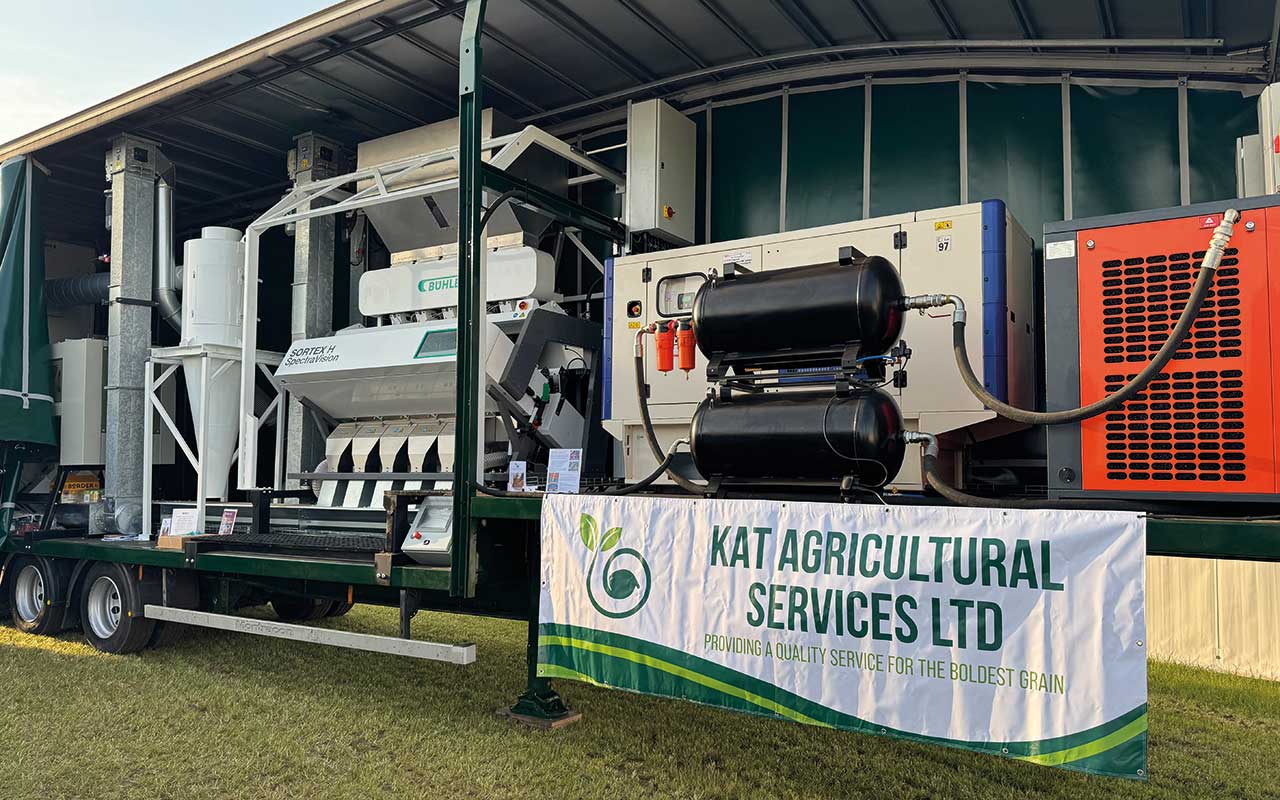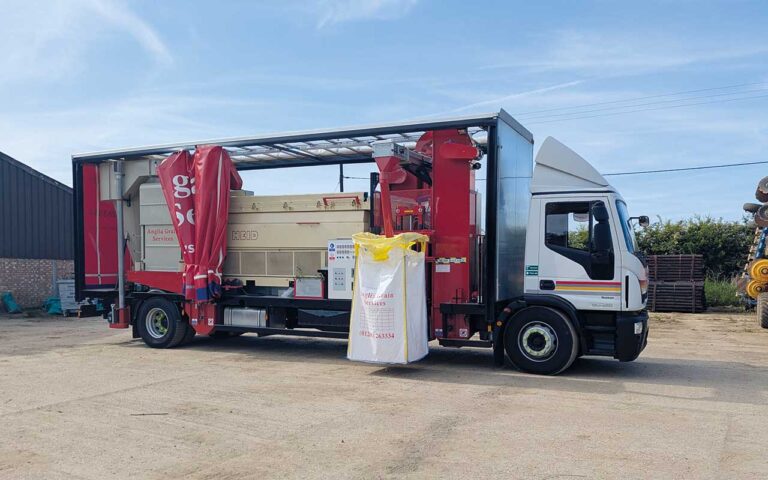At Cereals, the National Association of Agricultural Contractors (NAAC) relaunched its farm-saved seed standards, looking to promote the professionalism and high standards of its Assured Land-Based Contractor (ALBC) (Verified Seed) Scheme.
The scheme was originally launched at the event 26 years ago and offers growers genuine assurance about the activity of mobile seed processing contractors, thanks to independently audited standards.
Rob Barrie, NAAC seed section chairman, says: “Over the past 26 years, mobile seed cleaning contractors have seen a steady increase in demand for their services. This growth has been in response to a number of economic and environmental factors.
“The NAAC has responded by providing its members with the tools they need to provide a quality service and the ALBC Verified Seed Standard offers an additional layer of reassurance to customers.”
By being part of the scheme, seed processing contractors can prove the critical points of their process, including:
- Ensuring that personnel involved in seed processing are suitably skilled
- Ensuring that seed materials are traceable and free from harmful contamination
- Providing appropriate storage for raw materials
- Ensuring processing equipment is regularly and appropriately maintained and cleaned
- Adopting production processes, such as record-keeping, that ensure full traceability
- Identifying and controlling potential hazards.

The standards protect both the contractor and the grower, and indicate what an important part of the UK farming industry farm-saved seed is.
It enables growers to choose the best-performing varieties from their farm, taking harvested grain and producing a clean seed sample, with the largest, boldest seeds to promote good establishment. They have full control over the seed treatments used and know the provenance.
The NAAC is a member of the European Mobile Seed Association (Emsa), an organisation designed to raise awareness of farm-saved seed, keep growers informed about changing regulations, and act as a middleman between the seed breeders and the farmer.
Nigel Day, Emsa president, explains: “There was some friction between the breeders and those saving seed in the past. This was why at the Union for the Protection of New Varieties of Plants convention in 1991 it was negotiated that growers would pay a royalty on farm-saved seed.
“Plant royalties are paid to the mobile seed processor based on the tonnage of seed cleaned and treated, or directly to the British Society of Plant Breeders based on the area set to be drilled.”
He adds that this agreement secured the future of farm-saved seed in the UK, and set a precedent for other countries to follow, as well as enabling seed breeders to continue earning from their intellectual property. Money earned from farm-saved seed is put back into development of new varieties.
“Exchanging information with the other EU members also enables us to be proactive, both with developments in seed breeding and with potential issues for contractors and growers,” Nigel says.
“And we punch above our weight for a small organisation with our lobbying.”

The benefits of saving seed
David Leaper, technical seed specialist and agronomist with Agrii, explains that farm-saved seed is an absolute necessity for the UK. “This is especially true for high-volume cereal crops. The windows are so tight between harvest and sowing that any complications can severely disrupt the supply of certified seed.”
The national tonnage of farm-saved seed makes up 40-50% of the total seed sown each year. David notes that most growers do not continuously save seed from the same crop year after year, due to concerns over purity.
While decisions over farm-saved seed do not have to be made in advance – they can be done on the spur of the moment if the seed processor is available to clean and treat – David recommends some forethought.
“Growers should treat it as if they were growing for a certified seed breeder,” he says.
“A good-yielding area of the field should be highlighted, where weed pressure is minimal. It’s crucial to avoid any pre-harvest glyphosate applications, and in the unlikely event of a weed flush near harvest, it’s worth going out rogueing.”
This should be combined with a good crop rotation, which limits the effects of soil-borne diseases. David says all of this is good practice, and worth considering even when not saving seed. He also recommends working closely with the mobile seed processing contractor.
“If the aim of farm-saved seed is to minimise disruption between harvest and drilling, keeping in touch with the contractor and informing them of rough volumes of seed to be processed will ensure the contractor is there when you need them,” he says.
Rob White of Evans of Pearce agrees, noting that larger-scale customers will have the seed processor out multiple times throughout the season to quickly process enough seed for each sowing window, rather than cleaning and treating the whole volume.
The right seed treatment
One of the key benefits of farm-saved seed is that the grower is in control of seed treatments, whether this is a fungicide, pesticide, growth promotor or biostimulant. This flexibility allows them to match the seed exactly to the soil type and place in the rotation.
Rob Barrie advocates for regular seed testing for germination, thousand grain weight and seed-borne diseases. He highlights the 2023 spring cropping season, where around 20% of crops tested were found to be unsuitable for germination.
“It’s not in anyone’s interest to move forward with that, and processors need to work closely with customers to advise in these situations.”
He adds that the importance of farm-saved seed cannot be overstated, because the lower cost to the grower ensures that the base price for certified seed is kept competitive.
“Our role in the industry doesn’t just benefit those who are saving seed, but also helps every grower when it comes time to make an order.”
Challenges on the horizon
Only conventional varieties can be farm-saved, with hybrids having to be purchased as certified seed.
There are multiple reasons for this; the breeders says the genetic makeup of hybrid varieties make them unsuitable for farm-saving, and there is also the thorny issue of intellectual property around the various traits and breeding methods in hybrids.
Rob White says this isn’t really an issue for cereals at the moment, but has been felt by the mobile seed processing community with oilseed rape. He reiterates the importance of farm-saved seed for creating additional competition for the breeders, ensuring that prices are kept at a reasonable level.
“It’s important to remember that we are a small island with a maritime climate, so farm-saved seed gives us a huge advantage with retaining varieties that work well in UK conditions,” he says. “Without it, we risk exporting our seed industry abroad and being left vulnerable to supply chain disruptions.”
The fact that hybrids are ineligible for farm-saved seed has created some concern over precision-bred, or gene-edited, crops. These are now an inevitability rather than a possibility, and the NAAC is currently in discussions about farm-saving these crops.
“I would say it’s likely that these crops will be ineligible,” explains Rob. “This will be because they will likely go into the hybrid market. A greater concern is that breeders will shift away from conventional seed breeding. Farm-saved seed helps to plug gaps when certified seed is unavailable, and it would be short-sighted to jeopardise that.”

Moving with the times
KAT Agricultural Services specialises in mobile seed cleaning, and Karl Turner has adapted the business in recent years to meet the changing needs of customers. The family business has built five mobile seed processors in the past three decades.
“Each time we rebuild, the specification for the machine changes,” Karl says. “This is because we’re finding new ways to improve the machine with cleaning and treatments.
“Also the challenges that the industry faces are constantly shifting, so these improvements lead to a smoother, more efficient job.”
He is also looking at ways to add greater flexibility into the cleaning and treating process with the mobile processors.
“We’re looking at holding smaller quantities of each chemical, but with a greater variety of products so that we can always meet the customer’s needs,” he says. “I’m looking at biological seed treatments, including biostimulants, as these seem to be increasing in popularity.”
As the interest in farm-saved seed grows, so does the annual tonnage of seed processed. “Every machine probably runs through about 1,500t of seed each year.
People are really starting to understand how important farm-saved seed is; it protects the traits that work on your individual farm; and gives more control over the quality of crops you grow.”
The latest development to complement the seed processing business is a mobile Bühler Sortex H optical colour sorter – the first of its kind to be mounted on a mobile trailer unit. This was shown at this year’s Cereals Event, and will return at next year’s event.
“The move to minimum tillage and the loss of chemical controls has led to a increase in ergot infection, and the companies buying grain have a zero-tolerance policy on that – if ergot is found, the load will be taken to the buyer’s own seed cleaning company, which leads to significant cleaning and haulage costs for the farmer.”
The Bühler uses full-colour RGB cameras to sort grain, eliminating seeds with disease as well as defects or debris. It is built onto an arctic trailer, with a rotary drum clean and aspirator to keep dust to a minimum, and various holding and screening units.
The holding tanks enable the machine to work autonomously, with just one member of staff there to monitor the machine.
Because it eliminates the risk of additional charges from the grain merchant, Karl explains that this process will be viable both for those selling their grain and those using farm-saved seed.
As Rob White puts it: “The UK is ahead of the curve when it comes to seed processing. We have a fully audited set of standards, growers who understand how farm-saved seed works, and an excellent relationship with the breeders. It’s a vital part of UK agriculture.”



